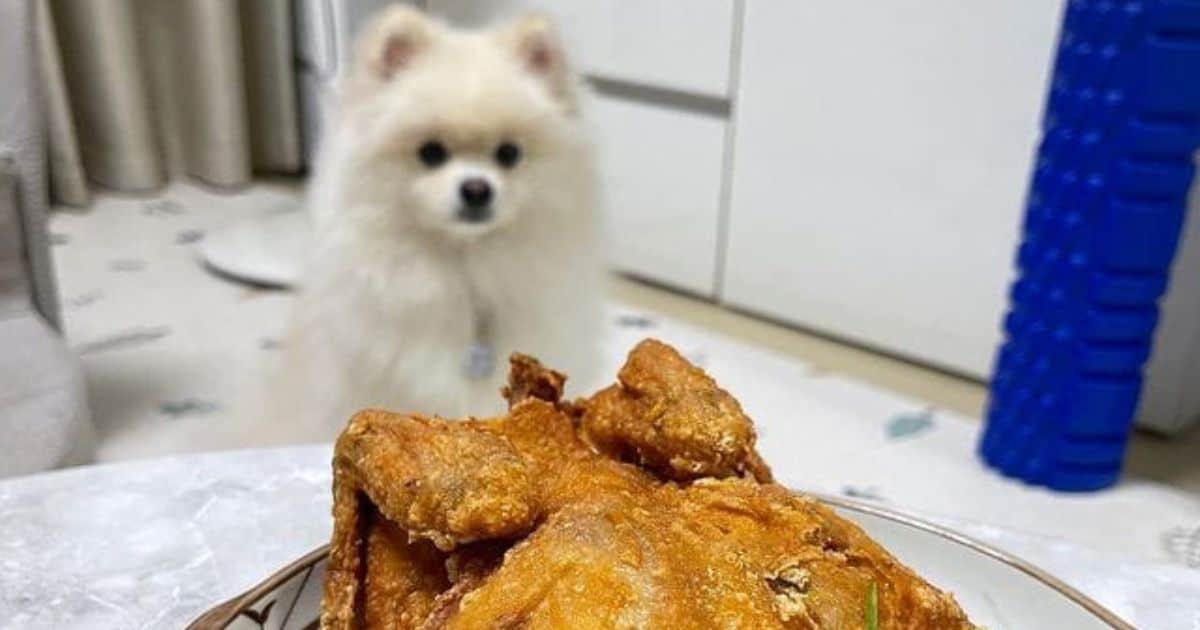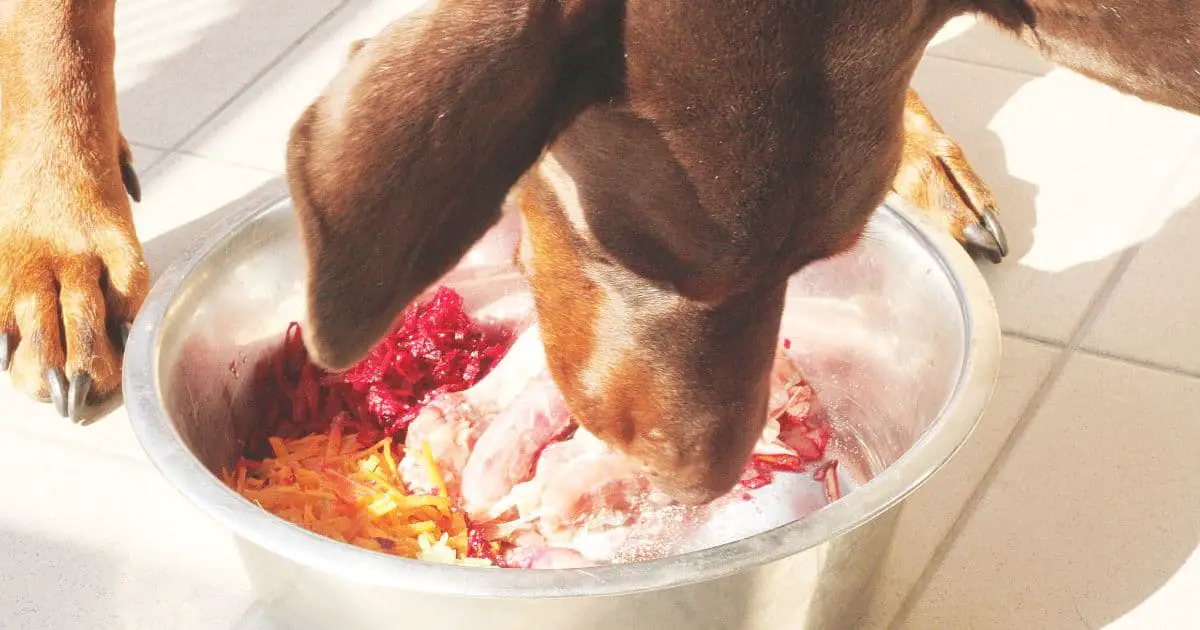Turkey is healthy lean meat and whenever we think of it we often think of the holiday season, especially Thanksgiving. But, is turkey bad for dogs?
It’s a classic food and most people love it, however, many dog owners are cautious about what they feed their pets. Is turkey bad for dogs? If you have a dog at home, you might be wondering the same thing.
Read our helpful guide to find out if it is ok to give turkey to your dog.
Is Turkey Bad for Dogs?

Rest assured! Turkey is completely safe to give to your dog, and it isn’t toxic in any form.
You can give them a turkey treat without any worries. The only thing you should be worried about is that they will not get enough of it and will be asking for more.
Bird meat is very healthy and safe for dogs. Turkey, which is lean meat, is low in fat, high in nutrients, and an extremely good source of protein.
Turkey is a delicious and popular human food, and it’s also safe for dogs to enjoy as well. However, any food that has not been cooked properly can be harmful to your dog. The same goes for Turkey: you must cook it properly.
Ensure to cook it the way you would eat it when you are preparing it for your dogs. Any form of undercooked meat can be bad for humans and dogs.
Overcooking turkey, on the other hand, can lead to dryness. Dry meat is usually difficult to digest. If you feed it to your dog, the chances are high that they end up with an upset stomach.
So, while it’s safe to add turkey meat to your pet’s diet, be sure that they are getting a balanced diet at the same time. Too much turkey can lead to digestive upset and health complications.
Nutritional Benefits of Turkey
Is turkey bad for dogs? Of all the different types of meats, turkey is renowned as a great source of vitamins and nutrients. Not only is it good for humans but for your pet as well. It’s among the best sources of Vitamin B which are essential for cell growth and metabolism in our body.
Also, turkey contains anti-inflammatory properties as it also has omega-3 fatty acids that are extremely beneficial to improving bones and joints.
Let’s take a look at other nutritional benefits of turkey:
Magnesium
Feeding your dog turkey is a great way to ensure that they are getting enough magnesium in their diet.
Magnesium is an essential mineral for your dog as it helps to improve and maintain body functions. That includes blood sugar levels, muscle functions and most importantly keeping the heart safe and healthy. This mineral is a must and should always be included in their regular diet.
Phosphorus and Zinc
Turkey is also an excellent source of phosphorus and zinc. Both these minerals are equally important and we advise you to ensure to include them in your dog’s daily diet.
Phosphorus helps keep their bones and teeth healthy and plays a vital role in energy formation.
Zinc helps with skin, digestion, and the immune system. An absence or low levels of zinc in your dog may lead to various problems such as diarrhea, skin infections, etc.
Riboflavin (Vitamin B2)
Riboflavin, which is also known as Vitamin B2, is important for canines as it helps to maintain a stable and tough immune system, good metabolism, and overall high energy levels.
Doctors recommend sticking to white meat turkey since it’s leaner and contains more nutrients. However, Riboflavin is also present in dark meat turkey.
Dogs that are nursing need an enormous amount of Riboflavin (Vitamin B2) so we advise feeding your dog white turkey meat when she’s nursing to ensure the healthy development of her puppies.
Overall, this mineral is essential for active dogs with various medical conditions.
Protein
Turkey is a fantastic protein source – lean meat is low in fat and high in protein.
If your dog has a chicken allergy, you can substitute its diet with turkey. Turkey meat is also considered to be a hypoallergenic protein source.
The meat is easily digested and the chances are low that it will cause any gastrointestinal issues. Ensure that the meat is thoroughly cooked and if served in moderation, it can be a great source of meat to keep your pet healthy.
The Best Way to Serve Turkey to your Dog

Turkey is a great source of proteins, minerals, and nutrients. Adding it to your dog’s diet can be extremely beneficial.
You can add bits of turkey to their normal diet – minced turkey meat is the best way they can enjoy the meal.
You can also buy treats that are turkey-flavored. Ensure that real turkey is being used for the treat. You can find various brands in the market or make them on your own. There are many dog treats available that are made from turkey bacon, turkey bone, cooked turkey, etc. The choice is limitless.
Turkey can be only bad for dogs if you give them the skin. We strongly recommend avoiding turkey skin as it contains too much fat.
A raw diet that includes ground turkey is also a good way to ensure they are getting enough nutrition. Incorporating this food habit will result in a healthy lifestyle.
Do you use plastic bins to store dog food? Read our blog on Is It Bad To Store Dog Food in Plastic Bins to learn more about it.
Things to Know About Serving Turkey to Your Dog
Turkey is a delicious and nutritious treat and in no way is turkey bad for dogs. However, there are a few essential things that you may want to consider before serving them the turkey.
Cook Your Turkey Thoroughly
Although turkey is safe to eat for dogs, undercooked meat can be extremely dangerous. It might contain bacteria that can degrade the health of your pup. Also, when you’re cooking it, avoid the use of condiments – too much sodium can lead to sodium poisoning.
Bed bugs are a menace but Do Bed Bugs Bite Dogs? Click on the link.
Avoid Processed Turkey
Processed turkey is high in fat and sodium which will deteriorate your dog’s health. Additionally, artificial flavors can also be harmful. The best way to give your dog turkey is by using natural ingredients.
Final Thoughts
Is turkey bad for dogs? No! Turkey meat can be extremely beneficial and nutritious for dogs when fed in moderation.
But at the same time, as with any food, it can be bad for their health if not cooked the right way. It’s important to be cautious when feeding your pup so that it can lead a healthy and happy life. If your furry friend is experiencing any discomfort while eating turkey or any food, contact a vet immediately.
CTA
Ever wondered why dogs scratch their bed? Read this article on Why Do Dogs Scratch Their Bed?
